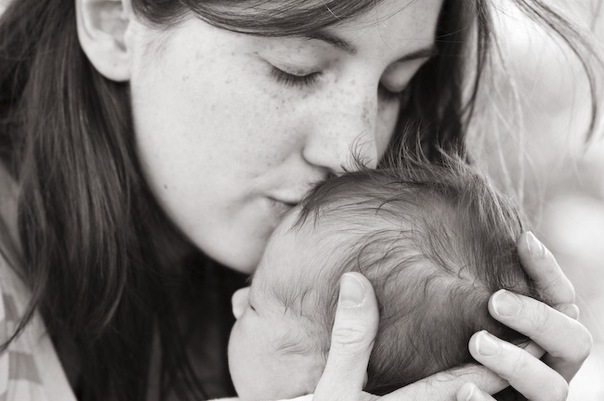You knew the time would come eventually. You’ve been completely honest with your child about the fact that she’s adopted. Now she’s asking questions about her birth parents. This article discusses 5 healthy ways to provide answers to her questions.

Know the facts
Before you can comfortably answer your child’s questions, you have to know the all facts about her family. Thanks to DNA testing, in most cases all the answers you need are close at hand. Paternity tests can clear up any questions about the father; maternity DNA tests can help ensure the baby does in fact belong to the mother putting the child up for adoption, which can be crucial for international adoptions from places where children may be kidnapped and sold. In short, these tests help create an accurate picture about your child’s history, which is crucial for when you must provide explanations down the road.
Acknowledge her feelings
For many adopted children, it is difficult and confusing to come to terms with the fact their birth parents gave them away. You’ll probably be able to sense the waves of emotions your child is experiencing when she turns to the subject of her adoption. Rather than brushing your observations under the rug, let her know that you’ve sensed her feelings, and that they’re valid. Reassure her that’s OK to feel sad, or angry, or hurt, and remind her that you’re there for her.
Let your child guide the conversation
Don’t forget that you’re answering your child’s questions, not launching a monologue, no matter if you’ve anxiously been preparing one ever since the adoption was made final. Allow her to lead the conversation, both in terms of content and tone. If she needs some time to step away from the talk, give her space. Allow her enough time to process what you’re saying. Chances are, you’ll have to hold several talks before you’ve covered most of her questions.
Be careful about divulging everything
When your child is a minor, and you haven’t arranged an open adoption, it can be confusing to have a parent or set of parents raising her along with identifying information for another set of parents. Resist the urge to tell all when your child is young; she will be able to seek out that information later in life, when the impact of the knowledge could affect her positively rather than negatively. Instead, stick with generalized information that helps paint a picture of where your child comes from. This information can be about heritage, for example.
Reinforce that adoption was an act of love
It’s natural for your adopted child to feel bangs of abandonment, which may surface during discussions about the subject. For that reason, it’s important to emphasize that her birth parents decided to put her up for adoption in order to ensure her needs were met; that, as an adoptive parent, you willingly and lovingly took on the rewarding task of raising her. Verbally reinforcing this fact can help keep the conversation positive and healthy.
Discussing the facts surrounding your child’s adoption can be difficult, but it’s also an important conversation to have. Give her the freedom to guide this crucial discussion, but be mindful about divulging too much to someone very young. Above all, make it clear that a great deal of love and concern went into the adoption process.
Author Bio:
Guest post contributed by Victoria for DNA Worldwide – Experts in DNA testing. Visit the DNA Worldwide website for more information.

